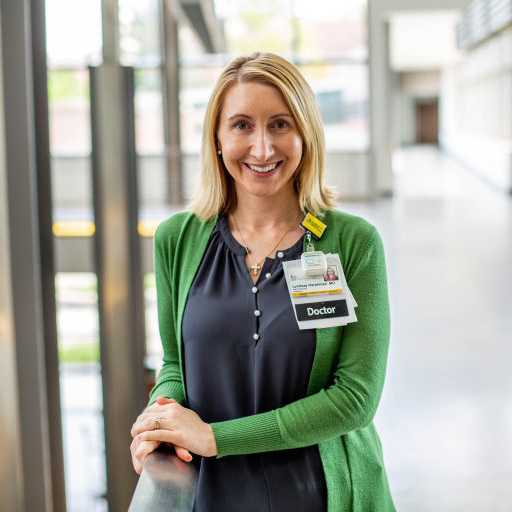 Assistant Professor of Pediatrics – Pediatric Nephrology, Dialysis, and Transplantation
Assistant Professor of Pediatrics – Pediatric Nephrology, Dialysis, and Transplantation
Why is it important to recognize women in medicine?
Women make up a vital segment of the medical workforce. Unfortunately, there is a stark gap between the number of women in medical school (representing approximately half of all medical student entrants in the US) and physicians in practice (approximately 35% women).
Recognition to the contributions made by women as physicians and scientists is not only important, but necessary to confront gender-based disparities in the field of medicine and aim for greater retention of women in the medical workforce.
What made you decide to pursue a career in medicine?
I had an opportunity to train as a phlebotomist during my senior year in high school. I recall one experience with a very sick patient on the floor and seeing the skill with which our local physician (who happened to be a woman) took charge of a rapidly declining situation. She showed skill, compassion, and clear-cut knowledge in a critical situation. I continued working as a phlebotomist throughout my undergraduate years, which allowed amazing direct patient care opportunities.
Cumulatively, these direct care experiences and time spent as a college student volunteer in the Medical Intensive Care Unit (MICU) with Volunteer Services demonstrated and reaffirmed to me that medicine was the right path for my life.
Who was a mentor to you that made an impact in your life? Why?
I am very blessed to have my research and career mentors be amazing, successful women at the University of Iowa. Peg Nopoulos, MD, psychiatrist, has supported my research career since medical school when I completed a year-out Doris Duke Clinical Research Fellowship. She subsequently has provided me with ongoing key mentorship needed to obtain an NIH K23.
Carla Nester, MD, pediatric nephrologist, is a clear example of excellence as a clinician, physician-scientist, and division director. Both women have been key in my early personal development.
What words of advice would you give to younger women hoping to begin studies or a career in medicine?
Don’t lose sight of personal relationships along the way to a medical career. These relationships and the people we love make us who we are. I believe that who I am as a physician-scientist is strengthened by my life outside of work, but most importantly by my family and friends.
What is a hobby of yours outside of work?
I love spending time with my husband and kids – my 6-year-old loves playing hockey and my 3-year-old loves to shop. We have our hands full! I play piano frequently and enjoy the opportunity to play for my church.
This year’s theme for Women in Medicine month is “Women in Medicine: Trailblazers, Advocates, Leaders.” What does this theme mean to you personally?
As a medical student, I was the Carver College of Medicine student body president (M3 year) and University of Iowa graduate and professional student body president (M4 year). I was able to work with colleagues to begin advocating at the state level for attention to professional student education and subsequent career retention in Iowa.
More recently, a close friend and colleague, Michael Appel, JD, and I have worked with the UI Center for Advancement to form an alumni network focused on recent graduates. I am so excited to see movement forward with the Graduates of the Last Decade (GOLD) group. This group has a far-reaching potential to advocate for the interests and needs of recent graduates.